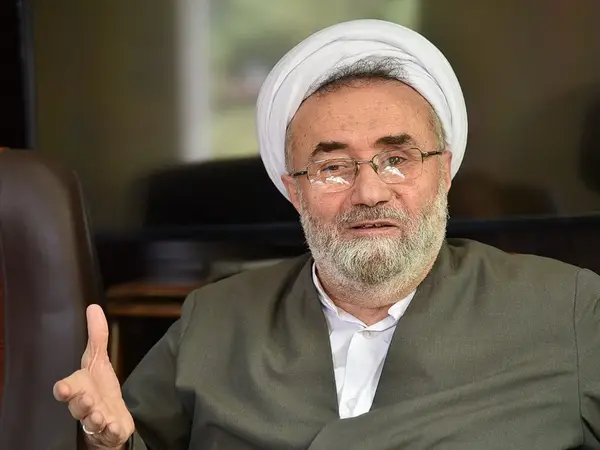A group of hardliners in Iran attacked the outspoken editor of a conservative paper during a speech, signaling rising intolerance even against regime loyalists.
Masih Mohajeri was speaking on Thursday at the anniversary of a 1981 explosion that killed tens of top officials of the newly established Islamic Republic, including Chief Justice Ayatollah Mohammad Beheshti. But a mob of angry clerics disrupted his speech.
What stirred the confrontation was the speaker's praise for former President and Expediency Council Chief Akbar Hashemi Rafsanjani, the man who brought Ali Khamenei to the position of Supreme Leader and was later pushed aside.
Like in many similar occasions, the attack seems to have been provoked by an article in the hardliner newspaper Kayhan which is close Khamenei’s office.
Ironically, both Kayhan and Jomhouri Eslami are financially backed by Khamenei, who is still the proprietor of Jomhouri Eslami, although his name no longer appears in the masthead.
Mohajeri, a cleric with no factional ties and free of any corruption allegations, has become a vocal critic of hardliners. In May, he called on President Ebrahim Raisi to resign amid a serious economic crisis.
Prior to the speech, Mohajeri had written an editorial in his newspaper, praising Beheshti, in the same way Khamenei had praised his former revolutionary colleague recently in a speech.
In his editorial, Mohajeri wrote, "I wish today's officials in Iran were as polite and considerate as Beheshti was. In that case we would have not seen the power struggle, unfairness and unethical conduct characteristic of Iranian politics."
Meanwhile, he criticized the exiled Mojahedin-e Kharq opposition group, otherwise known as the MeK, for allegedly being behind the blast that killed over 70 Iranian officials in 1981, many of them hardliner clerics.
In a video of the audience's attack on Mohajeri, a man trying to calm down the situation asks an angry young cleric whether he supports the Mek, an implicit accusation that could be incriminating in Iran where the Mojahedin are outlawed. The episode at the mosque in Yazd ended with Mohajeri leaving the scene.
The Kayhan had attacked Mohajeri after he wrote the editorial the day before his speech in Yazd, accusing him of "deviation" and behaving in a way that has made him "popular among the enemies who usually echo his words and promote his editorials."
The Kayhan particularly lashed out at Mohajeri for writing that "If Beheshti was alive today, he would have been put under house arrest," implicitly highlighting intolerance for criticism. Khamenei has put the Islamic Republic's first Prime Minister Mir-Hossein Mousavi and former Majles Speaker Mehdi Karroubi under house arrest for more than a decade.
Both Kayhan's behavior and the attack on Mohajeri in Yazd are further examples of this intolerance. However, the recent dismissal of the IRGC Intelligence Chief Hossein Ta’eb, and the ensuing widespread spy-catching operation that has started within the IRGC and Khamenei's headquarters mark a feeling of insecurity in the regime's core. The inner instability is to the point that the IRGC general in charge of Khamenei's own security was replaced and General Ali Nasiri, a counter-intelligence officer has reportedly been arrested on charges of espionage for Israel.
The general belief in Iran, as evidenced on social media is that individuals such as Hossein Shariatmadari, the editor of Kayhan, badly feel this insecurity and might be trying to prove their devotion to the Supreme Leader by attacking his old enemies and political rivals although some of them are dead and others have been languishing under house arrest.
